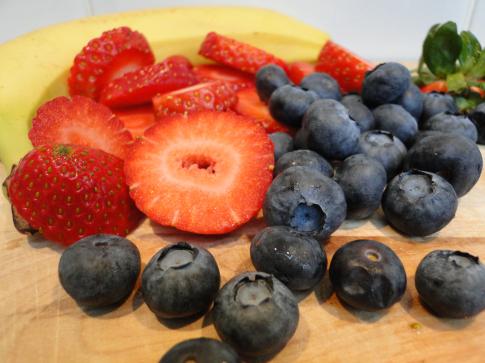Mediterranean diet 'as good as statins'

Sticking to a Mediterranean diet with plenty of olive oil and nuts is almost as good at reducing the risk of a heart attack as taking statins, say researchers.
By Stephen Adams, Medical Correspondent
They believe a diet of fish, chicken, fruit and vegetables is “better than a drug” because it does not have side effects, while cholesterol-lowering statins can cause problems like muscle cramps.
The academics made their conclusions after conducting a five-year study in Spain.
It compared the effects of three different types of diet on the chance of having a first heart attack or stroke in almost 7,500 people at high risk of cardiovascular disease.
Two of the diets were variations of the Mediterranean diet, one supplemented with nuts and the other with extra-virgin olive oil. The third was a low-fat diet.
None of the approaches was a ‘calorie counting’ diet, although those on the Mediterranean diets were advised to avoid baked foods and pastries which contain artery-clogging hard fats.
Those assigned to the Mediterranean-type diets had a 30 per cent lower risk of having a heart attack or stroke over five years, than those randomly selected for the low fat diet. They were also less likely to drop out - perhaps because they were enjoying their food more.
The results are important because they are the first from a large clinical trial to back up the widely-held theory that the Mediterranean diet is good for preventing heart attack and stroke.
Dr. Ramon Estruch of Hospital Clinic in Barcelona, who led the study, said: “Diet works.”
Because the Mediterranean regime had no side effects, he concluded: “We think diet is better than a drug.”
Writing in the New England Journal of Medicine, he and his colleagues said they thought what really mattered was the type of fats people were eating.
“Changes in total fat were small and the largest differences at the end of the trial were in the distribution of fat subtypes,” they wrote.
“Extra virgin olive oil and nuts were probably responsible for most of the observed benefits of the Mediterranean diets.”
They continued: “The results of our trial might explain, in part, the lower cardiovascular mortality in Mediterranean countries than in northern European countries or the United States.”
Dr Robert Eckel, professor of medicine at Colorado University, and an expert on heart disease prevention, commented on the study results: “The risk reduction is close to that achieved with statins.”
Exactly how much statins lower heart disease and stroke risk depends on who is taking them and the strength of the dose. Studies have typically reported that statins bring down the chance of heart attack or stroke by 20, 30 or 40 percent, in those at high risk of disease.
However, the study was not a ‘head to head’ pitting statins against the diet, so scientifically speaking the researchers could not make any conclusion about their relative effectiveness.
In fact, four out of 10 volunteers were actually on statins, while the majority were on blood pressure lowering drugs. So, the benefit from the Mediterranean diet, as reported in this study, was in addition to the benefit of taking these drugs.
The researchers thought the fact their study was conducted in Spain might have led to the protective effect of the Mediterranean diet being underplayed, because it was the ‘default’ diet there.
Dr Mike Knapton, associate medical director of the British Heart Foundation, said: “This large long-term study shows that eating a Mediterranean diet is associated with heart health benefits, including reductions in heart attack, stroke and deaths from cardiovascular disease.
“While these findings aren’t new they add to our knowledge and confidence that a Mediterranean diet can help cut down your cardiovascular risk. A well-balanced diet low in salt, saturated fat and sugar is a vital part of a healthy lifestyle.
“That said, a Mediterranean diet should not not replace your prescribed medication.”




 del.icio.us
del.icio.us Digg
Digg

Post your comment